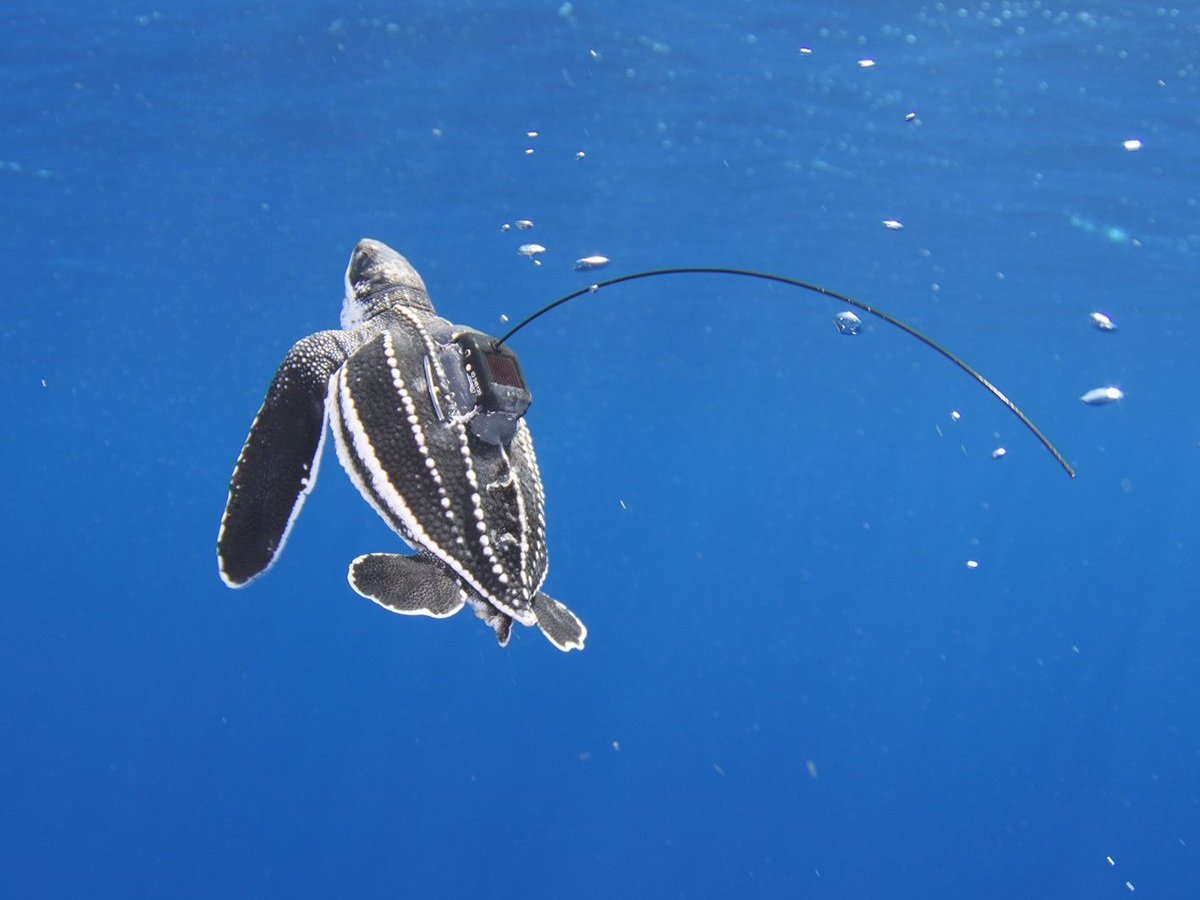New technologies are finally shedding light on one of the greatest mysteries in sea turtle biology. Using prototype “micro-satellite” tags specifically designed to fit juvenile leatherback turtles, Upwell and Florida Atlantic University researchers released eighteen captive reared juvenile leatherbacks to track their movements off the coast of Florida and shed light on the “lost years” phase of their lives.
3D Modeling Enhances Understanding of Leatherbacks
Saving East Pacific Leatherback Turtles from the Brink of Extinction
Concerned scientists, conservationists, and managers gathered in 2012 to discuss ways to stop the extinction of East Pacific leatherbacks; they formed a regional network called LaudOPO in 2015. This network has developed an Action Plan to address the two main threats to East Pacific leatherbacks: fisheries bycatch and egg loss or reduced hatchling recruitment at nesting beaches. Upwell is investigating active recovery techniques such as egg translocation and headstarting as options to complement LaudOPO’s conservation action plan.
Welcoming back California's leatherbacks
Learn about the female turtle tagged by NOAA and Upwell in 2020 whose transmitter is still reporting. She was tagged in September 2019, and she returned to same area where she was tagged in the Gulf of the Farallones this year on 31 July 2020. It’s exciting when we see one of these movement records close the loop! Additional leatherback sightings in the Monterey Bay have been reported recently.
Studying Turtles at Sea Offers Deeper Insights
Data collected at nesting beaches give us only a brief glimpse into sea turtles’ intricate life histories. Satellite tags are one of the best tools available to collect data on sea turtle movements and behaviors in marine habitats. But where tags are deployed matters. Deploying tags at nesting beaches means we are limiting our research scope to the females within a population that are nesting in a given year.
Discovering the Origins of Leatherbacks in the California Current
At the turn of the millennium, the origin of leatherback turtles in California waters was unproven. Many assumed they originated from nesting beaches in Mexico or Costa Rica; few could have imagined the extent of their travels across the entire Pacific Ocean. We know now that West Pacific leatherbacks only make their epic trans-Pacific migration about every three to five years. Unfortunately, the batteries on early satellite tags didn’t last long enough to track their whole migration.
Saving Sea Turtles with Technology
You might not think of someone behind a desk as working on the frontlines of sea turtle conservation, but Upwell’s Oceanographic Researcher, Tony Candela is doing just that. Tony is incorporating mathematics and oceanography to simulate the movements of hatchling and juvenile sea turtles to advance protections for them at sea.
Upwell Featured in Carmel Magazine
Leatherback Sea Turtles and Ecosystem Health in the California Current
Leatherbacks from above
The leatherbacks have returned to the central California coast! In partnership with NOAA, Upwell is conducting aerial surveys to locate critically endangered leatherback turtles in California's waters. Learn more about graduate student, Sharon Hsu's first-hand experience as an Upwell Observer aboard these flights.















